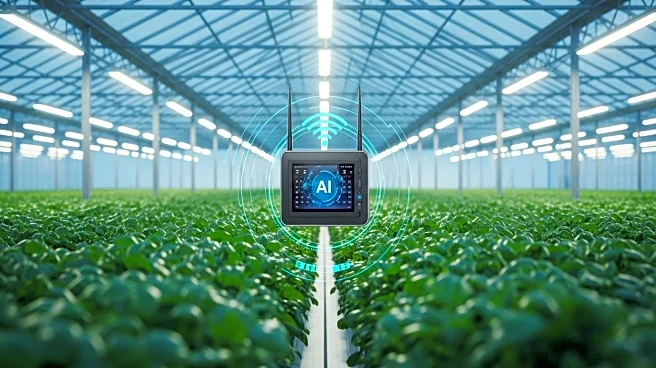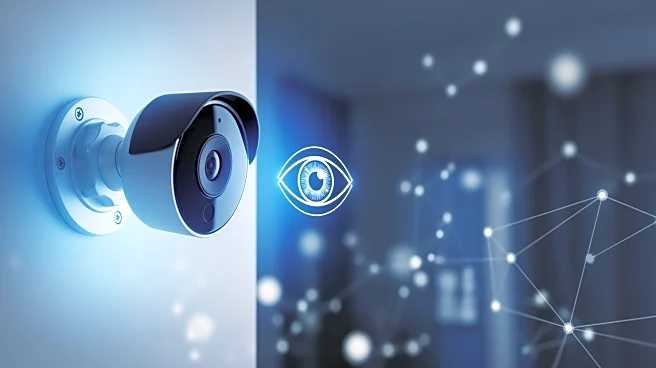What's Happening?
Farmonaut is leading the charge in smart and sustainable agriculture by integrating Internet of Things (IoT) technologies with artificial intelligence (AI) to revolutionize farming practices. By 2025, over 70% of large farms globally are expected to use IoT sensors for real-time soil and crop monitoring. These technologies enable precise irrigation management, fertilization control, and pest management, significantly improving efficiency and sustainability. IoT devices, connected via low-power wide-area networks, allow farmers to remotely monitor conditions and automate essential systems, reducing waste and environmental impact. Additionally, AI and machine learning analyze data from various sources, including satellite images and weather stations, to provide predictive analytics and anomaly detection, supporting proactive interventions and precision agriculture.
Why It's Important?
The integration of IoT and AI in agriculture is crucial for enhancing productivity and sustainability. These technologies empower farmers to make data-driven decisions, build climate resilience, and reduce dependencies on synthetic agrochemicals. By optimizing resource use and minimizing environmental stress, smart agriculture can produce more food with less input, supporting global food security. Furthermore, blockchain traceability solutions bolster food safety and supply chain integrity, allowing for transparent tracking of agricultural products from field to market. This shift towards precision agriculture not only improves yields but also supports environmental conservation, making it a vital development in the face of climate change and resource scarcity.
What's Next?
As smart agriculture technologies continue to evolve, the focus will likely shift towards further integration of chemical and biological solutions with IoT platforms. This synergy can enhance crop resilience against climate-induced stresses and reduce synthetic chemical use. Farmonaut's satellite and AI advisory systems are expected to play a significant role in implementing integrated pest management strategies at scale, reducing pesticide use while increasing crop resilience. The ongoing research in agricultural technology, reflected in rising impact factors of top journals, will continue to drive innovations that shape the future of farming, making it more sustainable and resilient.
Beyond the Headlines
The adoption of smart agriculture technologies raises ethical and cultural considerations, particularly regarding data privacy and the digital divide. Ensuring equitable access to these technologies for smallholder farmers and developing regions is essential to avoid exacerbating existing inequalities. Additionally, the reliance on digital tools necessitates robust cybersecurity measures to protect sensitive agricultural data. As the industry moves towards a data-driven future, stakeholders must address these challenges to ensure that the benefits of smart agriculture are widely shared and sustainable.










